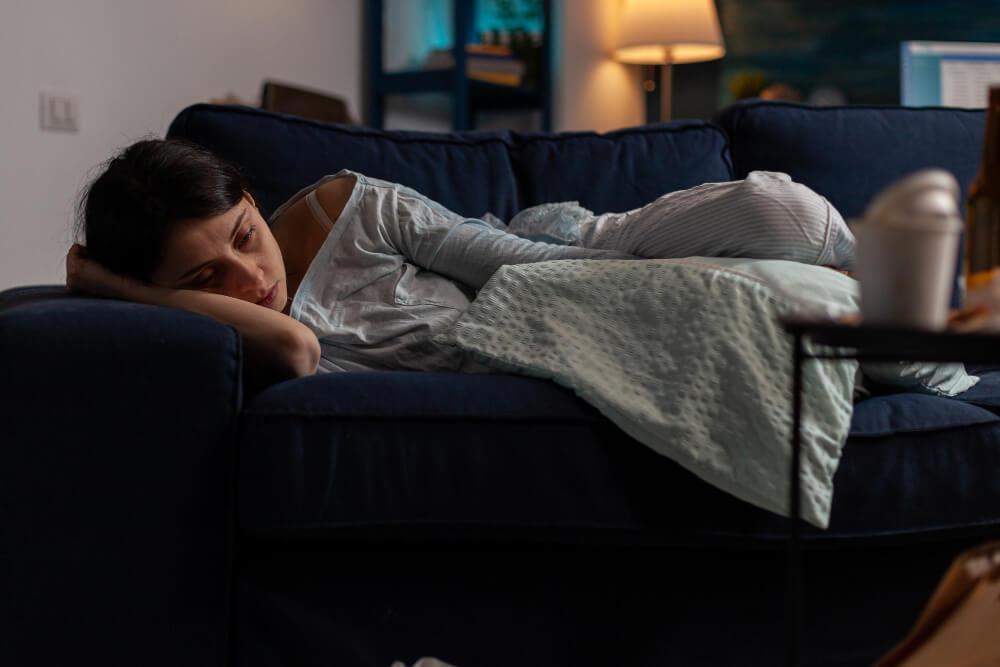Battling Sleep Deprivation: Decoding Causes, Effects, and Remedies
Sleep, our nightly escape into the land of dreams, is more than just rest for the weary. It’s a vital biological process that fuels our physical and mental well-being. But what happens when sleep is elusive, replaced by restless nights and groggy mornings? Enter sleep deprivation, a thief of energy, focus, and overall health.
The Grim Grasp of Sleep Deprivation: Recognizing the Causes
Sleep deprivation wears many masks, and its causes are as diverse as the individuals it affects. Here are some common culprits:
Lifestyle choices:
- Erratic sleep schedule: Inconsistent sleep patterns disrupt your body’s natural sleep-wake cycle, making it harder to fall asleep and stay asleep.
- Electronic screens: The blue light emitted by electronic devices suppresses melatonin, a hormone crucial for sleep regulation.
- Caffeine and alcohol: While initially promoting alertness, these substances can disrupt later sleep stages.
- Physical inactivity: Regular exercise can improve sleep quality, but excessive exertion close to bedtime can have the opposite effect.
Medical conditions:
- Sleep disorders: Sleep apnea, restless legs syndrome, and insomnia can significantly impact sleep quality and duration.
- Pain conditions: Chronic pain can make it difficult to find a comfortable sleeping position and disrupt sleep continuity.
- Mental health conditions: Anxiety, depression, and PTSD can lead to difficulty falling asleep or staying asleep.
External factors:
- Stress: Chronic stress activates the fight-or-flight response, making it harder to relax and fall asleep.
- Environmental factors: Noise, light, and extreme temperatures can disrupt sleep.
- Shift work: Working irregular hours disrupts your body’s natural sleep-wake cycle.
The Ripple Effect: Understanding the Consequences of Sleep Deprivation
Sleep deprivation doesn’t just leave you feeling tired; it casts a long shadow over your physical and mental health. Here are some of the potential consequences:
- Physical health: Increased risk of heart disease, stroke, diabetes, obesity, and weakened immune system.
- Mental health: Increased risk of depression, anxiety, and cognitive decline.
- Cognitive function: Impaired memory, focus, attention, and decision-making.
- Safety and performance: Increased risk of accidents, injuries, and errors at work.
Reclaiming Your Rest: Exploring Treatment Options
If you’re struggling with sleep deprivation, don’t despair! There are numerous treatment options to help you reclaim your sleep and restore your well-being.
Lifestyle changes:

- Develop a consistent sleep schedule: Go to bed and wake up at the same times each day, even on weekends.
- Create a relaxing bedtime routine: Wind down with calming activities like reading, taking a bath, or listening to soothing music.
- Optimize your sleep environment: Make your bedroom dark, quiet, cool, and clutter-free.
- Limit screen time before bed: Avoid using electronic devices for at least an hour before bedtime.
- Limit caffeine and alcohol: Avoid caffeine close to bedtime and be mindful of alcohol consumption.
- Engage in regular exercise: Get regular physical activity, but avoid strenuous exercise close to bedtime.
- Manage stress: Explore relaxation techniques like deep breathing, meditation, or yoga.
Cognitive behavioral therapy (CBT) for insomnia:
This therapy helps you identify and change negative thoughts and behaviors that contribute to sleep problems.
Medication:
In some cases, medication may be prescribed to help with sleep, but it should be used under medical supervision and not as a long-term solution.
Treating underlying medical conditions:
If a medical condition is contributing to your sleep problems, addressing that condition is crucial.
Conclusion
Sleep deprivation is a widespread problem with far-reaching consequences. By understanding the causes, recognizing the effects, and exploring treatment options, you can reclaim your sleep and unlock a healthier, happier you. Remember, prioritizing sleep is not a luxury; it’s an investment in your overall well-being. Sweet dreams!

